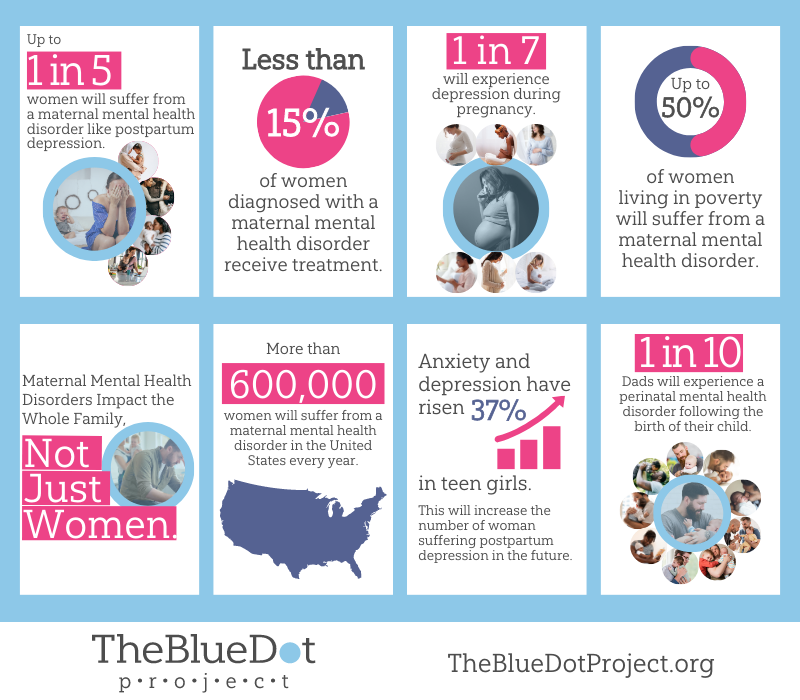
Caption
As many as 4 out of 5 women experience so-called “baby blues” in the weeks following birth. But postpartum depression is a psychiatric issue that often goes unrecognized.
Credit: TawnyNina / Pixabay
LISTEN: For the first time, doctors in Georgia can prescribe an oral treatment that works faster than anything previously available for postpartum depression. Earlier this year the U.S. Food and Drug Administration approved zuranolone and it’s now commercially available. GPB’s Ellen Eldridge reports.

As many as 4 out of 5 women experience so-called “baby blues” in the weeks following birth. But postpartum depression is a psychiatric issue that often goes unrecognized.
As many as 4 out of 5 women experience so-called “baby blues” in the weeks following birth. But postpartum depression (PPD), experienced by roughly 1 in 7 women, is a psychiatric issue that often goes unrecognized.
Perinatal mental disorders are the most common complication of childbearing. They’re associated with maternal and fetal/infant morbidity and mortality, according to a 2020 study published in World Psychiatry.
Symptoms of PPD can be debilitating and are characterized by negative changes in mood and impaired function. While all women can be affected by PPD symptoms are more common among minority patient populations compared to white patients.
Black and brown women, women who live in rural areas, and those on Medicaid may be more likely to receive inadequate postpartum care, compared to individuals in urban areas or with private health insurance.

Dr. Toby Goldsmith, an assistant professor at the Emory University School of Medicine Department of Psychiatry and Behavioral Sciences, said a new medication, zuranolone, works differently than traditional antidepressants like Prozac.
While women diagnosed with depression are more likely to experience PPD, Goldsmith said, PPD is its own illness: a reaction to the many changes which occur during the course of pregnancy.
"One of the neurosteroids decreases in the body significantly as soon as the woman gives birth," Goldsmith said. "And what zuranolone is doing is essentially replacing this neurosteroid."
As the director of PEACE for Moms and the Women's Mental Health Program, Goldsmith said recognizing PPD and seeking treatment is most important.
Women whose depression started during the pregnancy, typically during the third trimester of the pregnancy or since, may benefit from receiving zuranolone, she said. Goldsmith recently wrote her first prescription and is eager to see the results.
There are a pair of concerns, though. One of the big considerations is that the medication is sedating for a lot of people.
"And so that may require that the mother have assistance, especially in the evening," Goldsmith said. "Because she may have more difficulty waking up and you may not want her carrying a baby in the middle of the night."
The other issue is that it's not cheap.
Chief Business Officer at Sage Therapeutics Chris Benecchi said the biopharmaceutical company is committed to expanding access to Zurzuvae, the brand name for zuranolone.
“Innovations are only impactful if people can access them, and we will continue supporting the goal of broad and equitable access," he said. "Our support programs aim, where possible, to help women with PPD who are prescribed Zurzuvae to have little to no copay, and to provide product at no cost for eligible patients with no insurance, as we believe that lack of insurance or financial means should not be a barrier to treatment access.”
The once-daily, oral medicine therapy lasts 14 days, with results expected quickly.
"Patients start seeing a difference within as little as three days," Goldsmith said about zuranolone. "It's frequent, when our patients are on SSRIs, they often have to wait a matter of weeks, maybe even months, before they get a significant benefit."
But Goldsmith stressed that zuranolone is just one of numerous options and what is important is getting help.